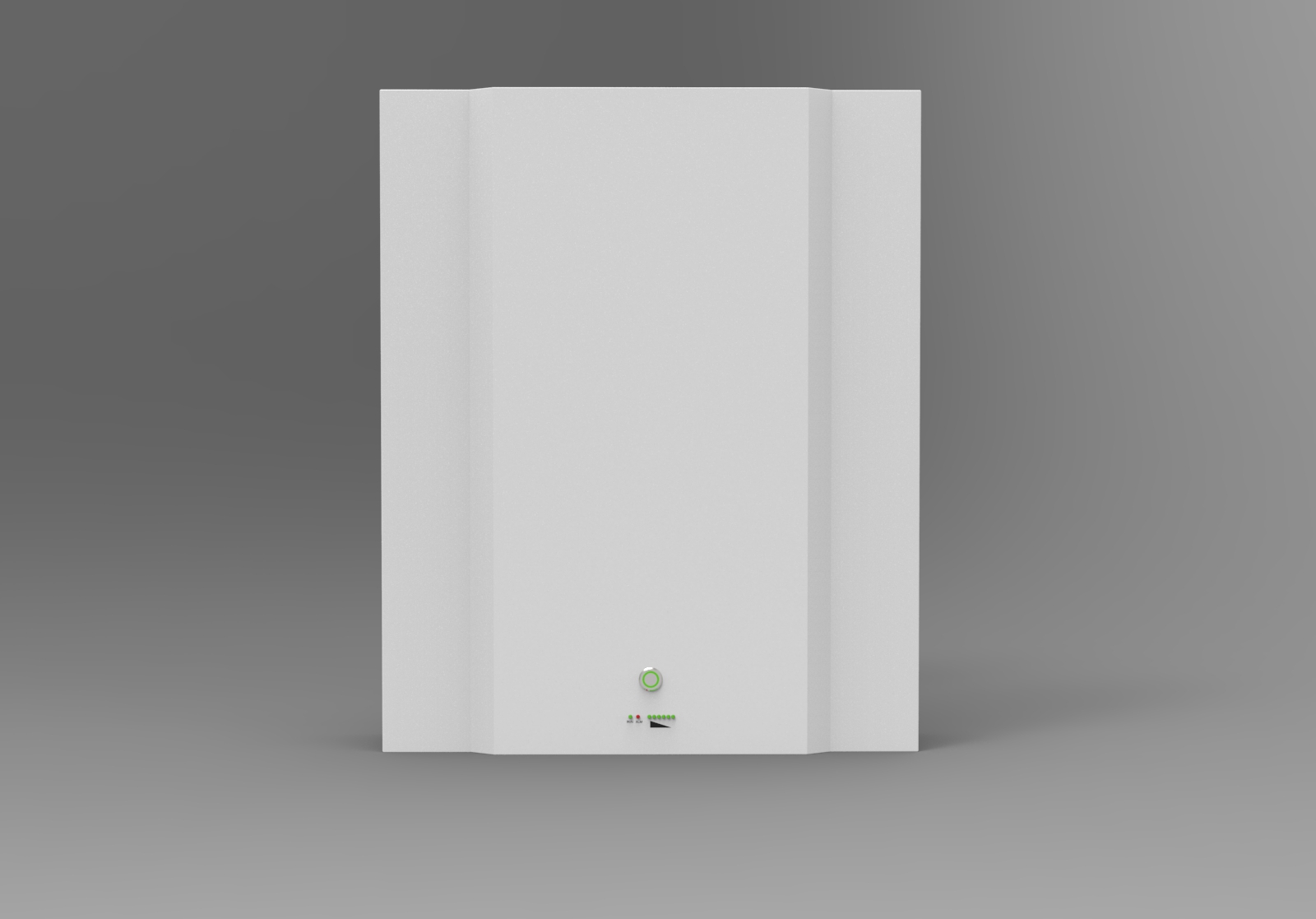A Brighter Future: Exploring Lithium Batteries For Inverter Systems
Are you looking for a brighter future for your power needs? Now you can with lithium batteries for inverter systems.
These batteries provide a reliable, efficient, and long-lasting energy source. From residential to industrial applications, lithium batteries are revolutionizing the way we generate and store energy.
With their superior performance and ease of use, these batteries are becoming the go-to choice for powering all kinds of systems.
In this article, we'll explore the evolution of inverter systems, the benefits of lithium batteries in inverter systems, their applications, key considerations, and more.
So, get ready to discover a brighter energy future with lithium batteries for inverter systems!
Key Takeaways:
- Lithium batteries offer superior performance and efficiency compared to traditional inverter technologies.
- They have a longer lifespan and require less maintenance, resulting in cost savings.
- Lithium batteries are lightweight and compact, making them easier to install and transport.
- They are ideal for residential, commercial, and industrial inverter systems, providing reliable power in various conditions.
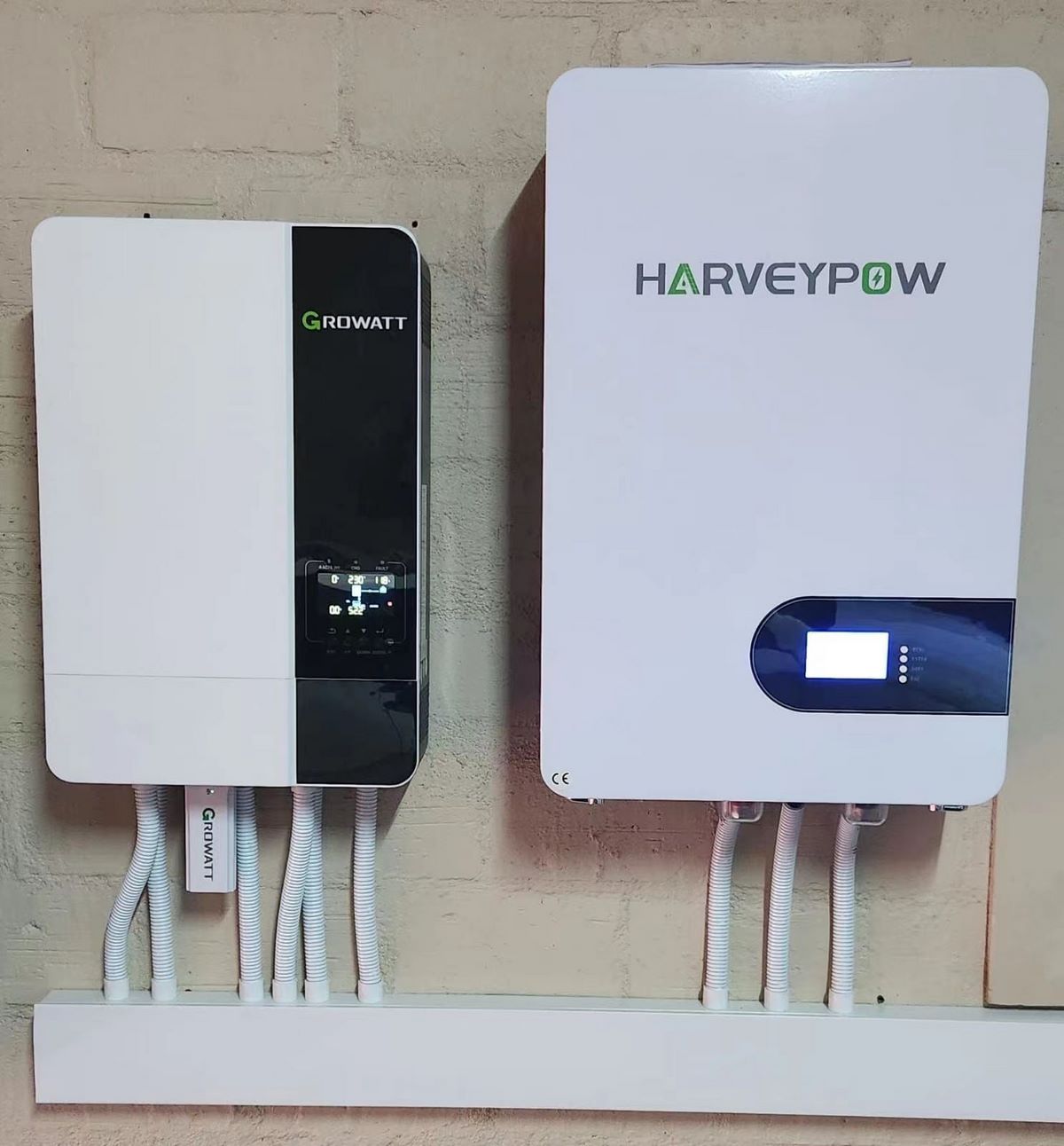
What are Lithium Batteries?
You may have heard of lithium batteries, but do you know what makes them so special?
Lithium batteries are a type of rechargeable battery, and they are increasingly popular in inverter systems due to their unique properties and advantages.
Lithium batteries can store more energy than other types of batteries, and they can also discharge their energy more quickly, making them ideal for many applications.
They also have a longer lifespan, so they require less maintenance and replacement than other types of batteries.
Types of Lithium Batteries
You may have heard of lithium-ion batteries or lithium iron phosphate (LiFePO4) batteries, the two main types of lithium batteries that are used for inverter systems today.
Lithium-ion batteries are widely used due to their high energy density and long lifespan, while LiFePO4 batteries offer a lower energy density with a longer life cycle.
In this discussion, we'll explore how these two types of batteries work and their advantages and disadvantages for inverter systems.
In addition, we'll explore some of the newer developments in lithium battery technology that offer even more benefits for inverters.
Lithium-ion Batteries
Lithium-ion batteries are increasingly becoming the top choice for inverter systems, offering impressive energy density and long-lasting performance. Here are the benefits:
- Quick charge time
- Low maintenance
- High Capacity
- Cost-effective
These advantages make lithium batteries the ideal choice for solar, home, and commercial applications.
Companies in South Africa are investing in lithium battery technology, and suppliers in Cape Town are offering lithium battery replacements for lead acid. This is paving the way for a brighter future with clean, reliable, and cost-effective energy.
Lithium Iron Phosphate (LiFePO4) Batteries
Discover the benefits of Lithium Iron Phosphate (LiFePO4) Batteries - an exciting alternative to traditional lithium-ion batteries.
LiFePO4 batteries have a longer lifespan and greater safety. They are ideal for solar battery care and renewable energy.
These batteries have a lower self-discharge rate and are less prone to overcharge compared to lead acid batteries.
LiFePO4 batteries are perfect for those seeking a powerful and reliable lithium battery for their inverter system.
Unique Properties and Advantages of Lithium Batteries
Unlocking the power of lithium batteries is like unlocking a vast treasure chest of benefits; they offer a range of unique properties and advantages that make them an attractive option for inverter systems.
To begin with, lithium batteries have a higher energy density than traditional lead-acid batteries, meaning they can store more energy in a smaller package. Additionally, lithium batteries are generally lighter than lead-acid batteries, making them easier to transport and install.
Furthermore, lithium batteries can be charged faster than lead-acid batteries, so they're ready to use sooner. When it comes to charging a lithium battery for the first time, it's important to use the right charger and set the right voltage. If the lithium-ion battery won't charge, then it's possible that the wrong charger was used or the voltage is set too low.
The unique properties and advantages of lithium batteries make them an ideal choice for inverter systems, offering a reliable and efficient power source.
Learn More Top Questions About Lithium Batteries!
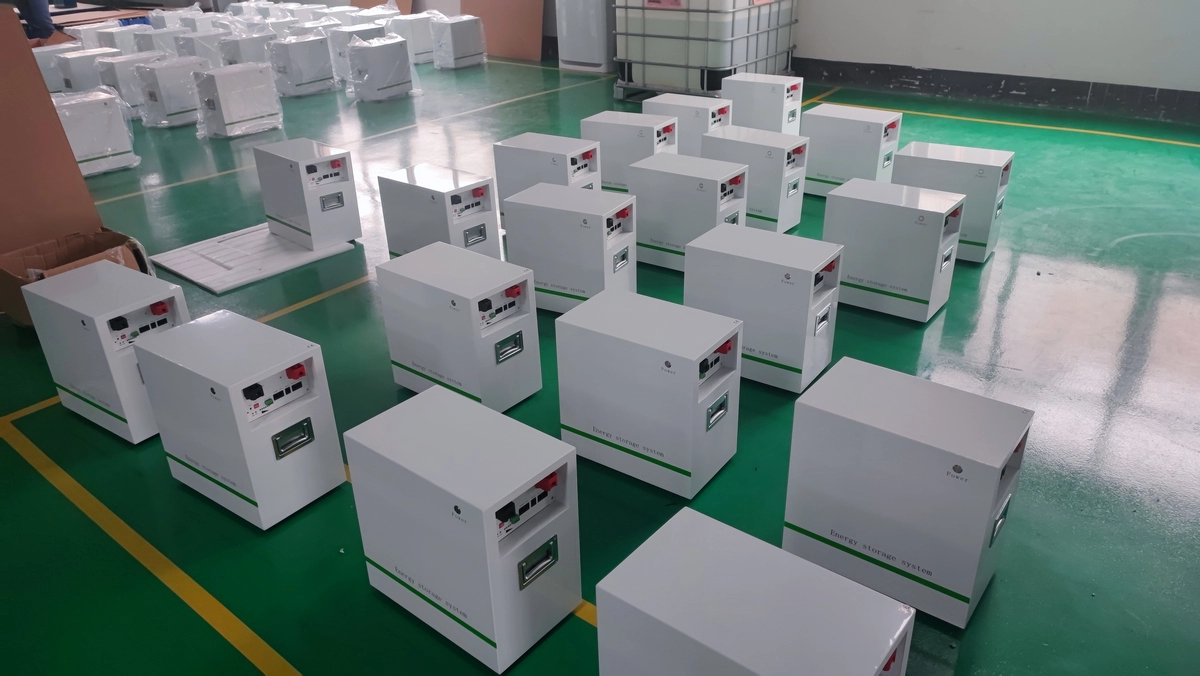
The Evolution of Inverter Systems
Inverter systems have been around for decades, but the introduction of lithium batteries has revolutionized the way they function. Traditionally, inverters were limited by their use of conventional batteries, which had several drawbacks. These drawbacks included short lifespans and slow charging speeds. However, the emergence of lithium batteries has changed these limitations, making them the go-to choice for inverter systems.
Lithium batteries offer a number of advantages over their conventional counterparts. These advantages include longer lifespans and faster charge times. These benefits are making them the preferred choice for many inverter systems and are paving the way for a brighter future.
Traditional Inverter Technologies and Limitations
Traditional inverter technologies have long been the go-to option for many applications, but they come with certain inherent limitations that can't be overlooked. For instance, they require a high level of maintenance which can be costly. They also have a limited lifetime due to their heavy reliance on lead-acid batteries. Furthermore, they are not as efficient as other available technologies, such as lithium-ion batteries. Lithium-ion batteries are lighter, more efficient, and require significantly less maintenance. As a result, lithium battery inverter systems are becoming increasingly popular for applications where cost and efficiency are a priority. With their longer lifespans, higher efficiency, and lower maintenance costs, lithium battery inverter systems are paving the way for a brighter future.
The Emergence of Lithium Batteries in Inverters
With their longer lifespans, increased efficiency, and lower maintenance costs, lithium battery inverter systems are becoming a more attractive option than traditional inverters, despite the initial cost being higher. Here are some key advantages:
1. Lithium batteries are lighter and more compact than traditional lead-acid batteries, making them easier to transport and install.
2. Lithium batteries can store more energy than traditional lead-acid batteries, allowing for more efficient power delivery.
3. Lithium batteries provide a longer lifespan and more reliable performance, so they require less maintenance.
4. Lithium battery inverter systems are also more efficient, as they're able to convert energy more quickly and efficiently than traditional inverters.
Overall, lithium battery inverter systems offer better performance, longer lifespan, and greater efficiency than traditional inverter systems, making them a great choice for those looking for a brighter future.
Advantages of Lithium Batteries over Conventional Batteries
Comparing lithium batteries to traditional batteries, it's clear that the former offer superior performance, longevity, and efficiency.
Lithium batteries are able to store more energy, so they can power larger loads for longer periods of time. They also are more efficient, meaning they can convert more of the energy stored into usable power.
They have a longer life expectancy, so they need to be replaced less often. This saves money on replacement costs and reduces downtime.
Additionally, they are lighter in weight and compact in size, so they are much easier to install and transport.
All in all, lithium batteries are a great choice for inverters due to their superior performance, efficiency, and durability.
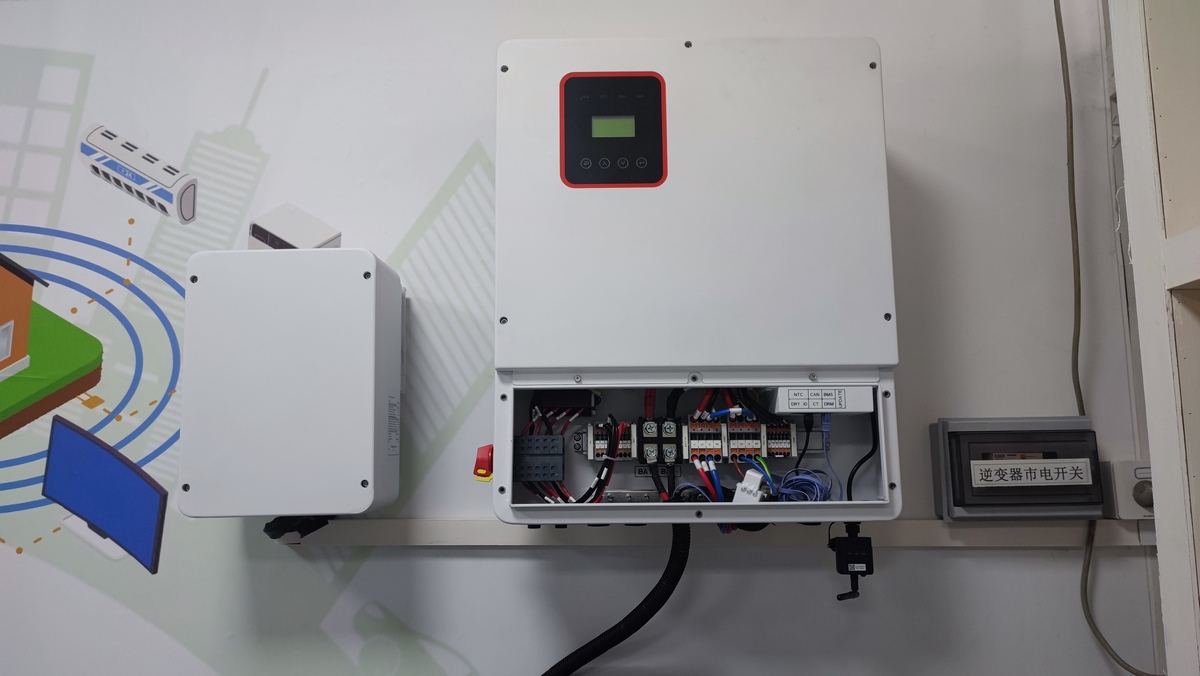
Benefits of Lithium Batteries in Inverter Systems
Leveraging lithium batteries for inverter systems can lead to long-lasting, low-maintenance lighting that luminously illuminates the future.
Lithium batteries are becoming increasingly popular for use in inverter systems due to their superior energy density, long cycle life, and low self-discharge rate. This makes them an ideal choice for applications that require a reliable source of power.
Lithium batteries offer a number of advantages over conventional batteries, including a higher capacity, lighter weight, and longer lifespan. In addition, they're also more efficient at converting stored energy into usable electricity.
The use of lithium batteries in inverter systems can also result in significant cost savings over time. They provide a more consistent output voltage, reducing the need for frequent battery replacements and associated costs. They also require less maintenance, reducing operational costs. Furthermore, lithium batteries can provide a higher power output, allowing for more efficient usage of electricity.
Lithium batteries are also highly reliable and durable, making them a safe and secure option for powering inverter systems. They can operate in a wide range of temperatures and environments and are resistant to short-circuiting and other potential hazards. This ensures that they can provide a reliable source of power in a variety of conditions.
The use of lithium batteries in inverter systems can provide a number of benefits, from cost savings to improved reliability. With their superior energy density, long cycle life, and low self-discharge rate, they offer a reliable source of power that can help to illuminate the future.
Applications of Lithium Batteries in Inverter Systems
You may be familiar with residential solar power systems, but did you know that lithium batteries are also used in commercial and industrial inverter applications?
Lithium batteries are becoming increasingly popular for off-grid and remote power solutions. This is due to their lightweight, high energy density, and long life.
Inverter systems powered by lithium batteries are reliable, efficient, and cost-effective. This makes them an attractive choice for many applications.
Residential Solar Power Systems
By utilizing residential solar power systems, you can take advantage of the latest lithium battery technology to create a brighter future. Lithium batteries provide an efficient, cost-effective, and reliable power source for residential solar-powered systems. With their high energy density and superior energy storage capabilities, lithium batteries are perfect for powering solar systems.
Using lithium batteries in residential solar power systems can help you transition to renewable energy sources while reducing your energy costs and environmental footprint. They offer superior storage capabilities and are perfect for powering solar systems. With their long-term reliability and low maintenance requirements, you can trust that your solar system will perform well for years to come.
Off-Grid and Remote Power Solutions
Discover how off-grid and remote power solutions can provide your home or business with reliable energy sources and help reduce your energy costs.
Lithium-ion battery inverter systems are an ideal choice in areas where traditional grid power is unavailable or unreliable. The batteries are not only powerful and lightweight, but they also offer a high energy-to-weight ratio, which makes them suitable for off-grid and remote power applications.
Inverters convert direct current (DC) electricity from the batteries into alternating current (AC) electricity for use in appliances and other electronics. With the help of a solar panel or wind turbine, these systems can be used to generate and store electricity for use when needed.
As an added benefit, the use of lithium batteries helps to reduce energy costs, as they're more efficient and require less maintenance than other types of batteries.
Commercial and Industrial Inverter Applications
As the demand for renewable energy solutions grows, so does the use of lithium battery inverter systems in commercial and industrial applications. Inverters allow you to convert the direct current (DC) energy produced by solar panels and wind turbines into alternating current (AC) energy, which is more practical for powering appliances and other infrastructure.
Lithium batteries offer a safe, efficient, and cost-effective way to store energy, making them an ideal choice for commercial and industrial inverter systems. By using lithium batteries, businesses can store energy to be used when renewable sources are unavailable, ensuring a consistent and reliable power supply. Additionally, they provide a sustainable and cost-effective alternative to traditional energy sources.
To ensure that your business is prepared for a brighter future, investing in a lithium battery inverter system is the way to go.

Key Considerations When Using Lithium Batteries with Inverters
Are you considering making the switch to a lithium battery-based inverter system? There are a few key considerations to keep in mind.
Firstly, compatibility with inverter technology is essential.
Secondly, battery management systems (BMS) for lithium batteries are a must-have.
Lastly, you'll need to consider the cost analysis and return on investment (ROI) carefully.
Ultimately, you'll want to ensure a smooth transition to a system that provides reliable performance and long-term value.
Compatibility with Inverter Technology
Lithium batteries' compatibility with inverter technology is key to creating a brighter future. To ensure this compatibility, it's important to consider the following points:
1. Voltage compatibility: The voltage of the lithium battery should match the inverter's input and output voltage.
2. Charge and discharge rate: The lithium battery and inverter should be able to handle the same charge and discharge rate.
3. Temperature range: Both the lithium battery and inverter should be able to function in the same temperature range.
4. Safety features: Safety features should be built into both the lithium battery and inverter to ensure safe operation.
Compatibility between lithium batteries and inverters is essential for a brighter future. With the right considerations and compatibility, they can work together to provide reliable, efficient energy solutions.
Battery Management Systems (BMS) for Lithium Batteries
Transitioning from the compatibility of lithium batteries with inverter technology to the importance of Battery Management Systems (BMS), it's essential to understand the fundamental role of BMS in the life and performance of lithium batteries.
BMS is essential to ensure the maximum life and performance of lithium batteries. They monitor and control the charging and discharging of the battery, provide protection against overcharging and over-discharging, and monitor and balance cell voltages.
BMS also assists with temperature control, providing additional protection against extreme temperatures.
Finally, BMS can provide useful information to the user, such as the state of charge and remaining capacity of the battery.
Cost Analysis and Return on Investment (ROI)
Investing in a BMS can be costly, but the long-term ROI makes it worthwhile. Even though the upfront costs may be high, the life-extending benefits of the BMS make it a great way to ensure the safety and reliability of lithium batteries.
| Cost | Level | Benefits |
| Initial Cost | High | Lower Risk |
| Long-Term Cost | Low | Higher Reliability |
| Maintenance Cost | Low | Increased Efficiency |
| Life Cycle Cost | Low | Extended Battery Life |
| Return on Investment | High | Improved Performance |
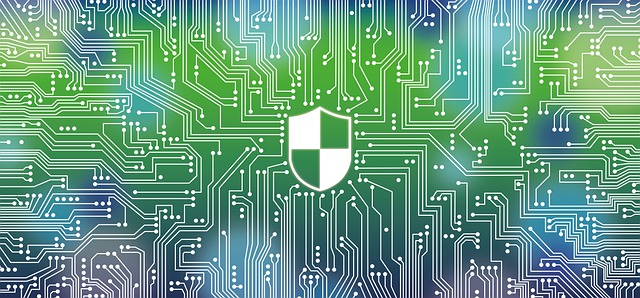
Overcoming Challenges and Future Trends
As you explore the potential of lithium batteries for inverter systems, it's important to understand the challenges and future trends. Addressing safety concerns and thermal management will be key to enabling the successful integration of lithium batteries into inverter systems.
Advancements in lithium battery technology for inverters, such as improved energy density and discharge rates, will also be essential. Additionally, the potential integration of lithium batteries with energy storage systems and smart grids may create an exciting new opportunity for renewable energy sources.
Addressing Safety Concerns and Thermal Management
Given the inherent risks associated with lithium batteries, it's essential to ensure that proper safety protocols and effective thermal management strategies are in place.
To ensure the reliable operation of lithium battery inverter systems, the following must be addressed:
- Installation of safety devices and circuit protection systems
- Implementing proper maintenance and inspection protocols
- Developing strategies to reduce the risk of fire and explosions
- Ensuring the system is optimized for efficient thermal management
- Adopting advanced cooling technologies to reduce the risk of overheating.
By addressing these concerns, lithium battery inverter systems can be made safer and more reliable, allowing for a brighter future.
Advancements in Lithium Battery Technology for Inverters
Exploring advancements in battery technology for inverters, researchers are constantly pushing the boundaries of what's possible, creating a world of possibilities with each new discovery.
Lithium batteries are a key component of inverter systems, and progress in this technology is essential to create a brighter future. Recent advances in lithium battery technology have resulted in higher energy density, lower cost, and improved safety.
The use of nanomaterials and advanced manufacturing techniques has enabled longer lifespans and enhanced performance. Inverter system designers are now able to pack more power into smaller and lighter packages while optimizing energy efficiency and cost-effectiveness.
With the right combination of materials, lithium-ion batteries can be used to power a variety of applications such as renewable energy systems, electric vehicles, and smart home systems. With continued progress in lithium battery technology, we're one step closer to creating a brighter future.
Potential Integration with Smart Grids and Energy Storage Systems
Combining lithium battery technology with smart grids and energy storage systems could revolutionize the way we use and store energy. Smart grids utilize digital technology to monitor and manage energy usage in order to optimize efficiency and reliability. By integrating lithium batteries into the grid, energy can be stored and used when most needed, reducing the need for expensive and dirty conventional sources. Furthermore, energy storage systems can be used to store excess energy generated by renewable sources, such as solar and wind, for use during peak demand times.
| Benefits | Challenges |
| Optimized efficiency and reliability | Expensive and complex to integrate |
| Reduced need for conventional sources | Inflexible grid infrastructure |
| Storage of excess energy | High cost of batteries |
| Improved energy security | Regulatory and legal obstacles |

Conclusion
In conclusion, the use of lithium batteries in inverter systems is the way of the future. Not only do they offer a range of benefits such as higher efficiency, a longer lifespan, and increased reliability, but they are also becoming increasingly more affordable.
In fact, the cost of lithium batteries has decreased by 70% since 2010, making them a viable option for many businesses and households. With the right knowledge and key considerations in mind, lithium batteries can bring a brighter future to inverter systems.
